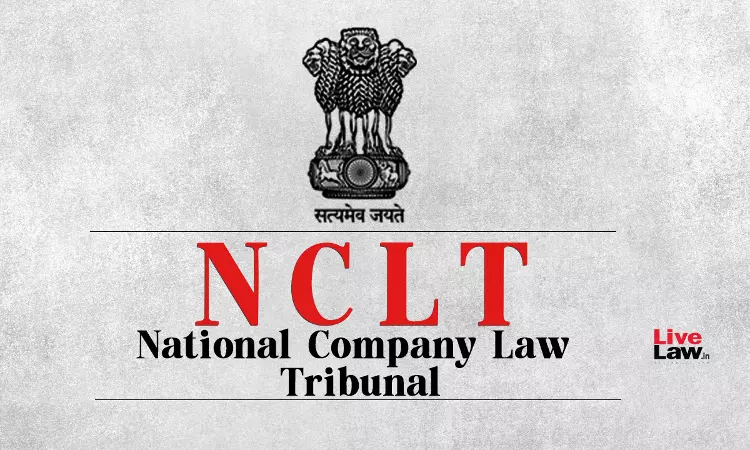Absence Of Formal Written Agreement Does Not Preclude Establishment Of Financial Debt: NCLT Delhi
LIVELAW NEWS NETWORK
2 Jun 2025 3:55 PM IST
The National Company Law Tribunal Bench of Shri Mahendra Khandelwal (Judicial Member) and Shri Atul Chaturvedi (Technical Member) the absence of a formal loan agreement does not defeat the existence of a financial debt. Documentary evidence such as tax filings (Form 26AS), TDS deductions, ledger entries, financial statements, and written acknowledgments are sufficient to establish...
The National Company Law Tribunal Bench of Shri Mahendra Khandelwal (Judicial Member) and Shri Atul Chaturvedi (Technical Member) the absence of a formal loan agreement does not defeat the existence of a financial debt. Documentary evidence such as tax filings (Form 26AS), TDS deductions, ledger entries, financial statements, and written acknowledgments are sufficient to establish a Financial Debt under Section 5(8) of the Insolvency & Bankruptcy Code, 2016.
Background Facts:
The Financial Creditor disbursed an unsecured loan of ₹ 1.5 crores to the Corporate Debtor on 22.03.2016. The amount was advanced without any security and was repayable on demand. The Corporate Debtor acknowledged the debt through balance confirmation statements, which were submitted along with the petition to evidence the admission of liability.
The Corporate Debtor made regular interest payments on the loan at 15% per annum from 18.05.2016 until 31.03.2019 and also deducted TDS on these payments. This was corroborated by entries in the Form 26AS of the Financial Creditor and reflected in its ledger accounts. Additionally, the Corporate Debtor's audited financial statements for the financial year 2017–18 recorded the loan under the head “Long-Term Borrowings.”
However, no payments were made after 31.03.2019. In April 2021, the Corporate Debtor's Director, issued a letter expressly acknowledging the outstanding principal of ₹1.5 crores along with accrued interest, and assuring repayment by 30.09.2021.
The Financial Creditor submitted that the Corporate Debtor never disputed the debt, nor did it propose any restructuring or settlement plan. No part-payments have been made since the alleged default date of 01.10.2021. The petition was filed on 21.09.2023, within three years from the date of default, and thus is within the limitation period under Article 137 of the Limitation Act, 1963.
Contentions:
The Corporate Debtor contended that there was no formal loan agreement or written contract setting out the terms of the disbursement or interest. The disbursement did not constitute a “financial debt” under Section 5(8) of the Code, as there was no express consideration for the time value of money.
In response, the Financial Creditor relied on Regulation 8(2)(a) of the IBBI (CIRP) Regulations, 2016, which permits proof of financial debt through various forms of documentary evidence, including financial statements, tax records, and bank documents.
It was submitted that interest payments and TDS deductions clearly reflected the presence of consideration for the time value of money. Furthermore, the letter dated April 2021 from the Corporate Debtor's director constituted an unambiguous acknowledgment of liability and extended the limitation period under Section 18 of the Limitation Act, 1963.
Findings:
The Tribunal noted that, although there was no formal written loan agreement the disbursement of ₹1.5 crores by the Financial Creditor was not in dispute. The Corporate Debtor had consistently paid interest at the agreed rate of 15% per annum until 31.03.2019 and deducted TDS, which is corroborated by entries in Form 26AS and the petitioner's ledger account.
Furthermore, the Corporate Debtor's audited balance sheet for FY 2017–18 recorded the loan under “Long-Term Borrowings,” thus amounting to a clear acknowledgment of liability. The Tribunal emphasized on the April 2021 letter issued by the Director of the Corporate Debtor which reaffirmed the outstanding debt and promised repayment by 30.09.2021. This letter was accompanied by a confirmation of accounts covering the period 01.08.2015 to 31.03.2021, affirming both principal and accrued interest.
In Satish Balan v. Neeta Navin Nagda, 2023, NCLAT held that absence of a formal written agreement does not preclude the establishment of a financial debt.
Also in Jairakash Agarwal v. Alka Prakash Agarwal, 2024 SCC and Agarwal Polysacks v. K.K. Agro Foods, 2022 the NCLAT upheld the maintainability of Section 7 petitions based on documentary evidence such as Form 26AS, TDS deductions, and acknowledgments, and it was reiterated that documents like financial statements and repayment assurances could validly establish a financial debt, even in the absence of a loan agreement.
The Tribunal reiterated that the absence of a formal loan agreement does not defeat the existence of a financial debt. Documentary evidence such as tax filings (Form 26AS), TDS deductions, ledger entries, financial statements, and written acknowledgments are sufficient to establish a claim under Section 5(8) of the IBC.
The Tribunal held that the existence of financial debt and its default by the Corporate Debtor was clearly established by the material on record. It concluded that all essential elements under Section 5(8) of the IBC were satisfied. Consequently, the petition was admitted, and CIRP was initiated against the Corporate Debtor for a default amount of ₹2,70,33,417.
Case Title: Fashion Suitings Pvt. Ltd.
Case Number: Company Petition IB/689/ND/2023
Judgment Date: 09/05/2025
Counsel for Petitioner: Adv. NPS Chawla, Adv. Sujoy Datta, Adv. Vibhor Kapoor, Adv. Shubham Raghuwanshi,
Counsel for Respondent: Adv. Kartik Malhotra



